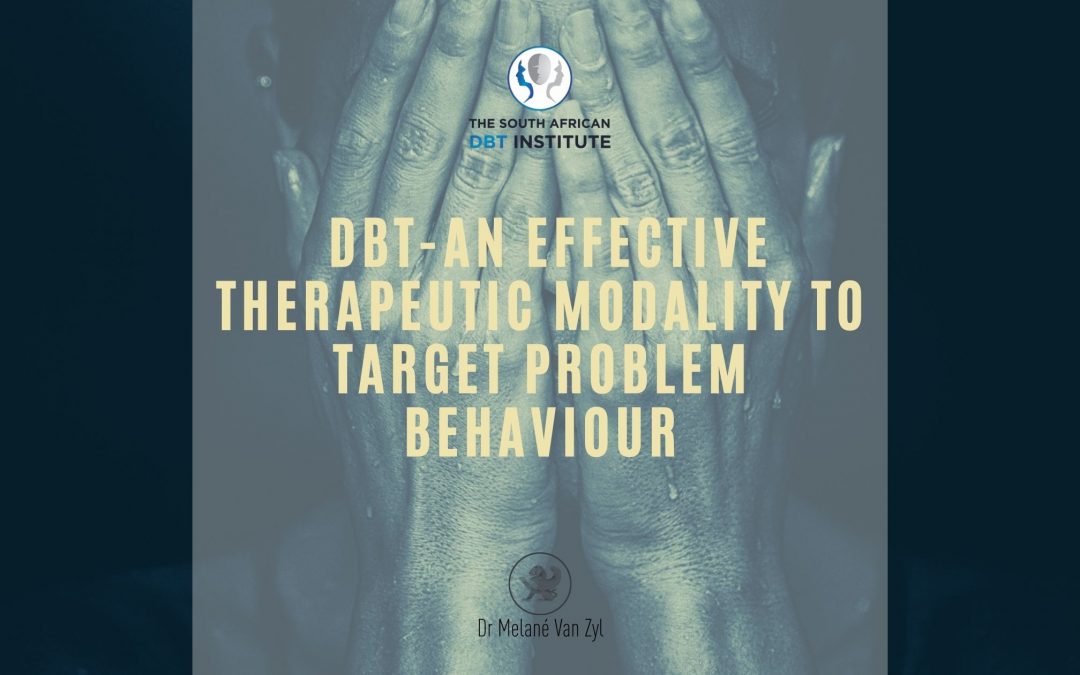DBT is a broad-based cognitive behavioural treatment originally developed for patients who were diagnosed with Borderline Personality Disorder (BPD), and were chronically suicidal. DBT has been shown to be effective in multiple trails not only for BPD, but also other disorders that present with emotional dysregulation and problematic cognitive behavioural patterns.
In my practice I have found DBT skills of immense value, and in my social/ family life I have found the skills work so well – they are like superpowers! I will venture so far as to say that these DBT skills are fundamental life skills that should be taught to everyone. Before we look at what a typical DBT program looks like, have a look at this video where Marsha Linehan, the founder of DBT, describes that actual goal of DBT- going for a life worth living.
MARSHA LINEHAN – Going for a Life Worth Living
DBT includes four components namely mindfulness, distress tolerance, interpersonal effectiveness, and emotional regulation. For each component there are skills to be learned.
In the outpatient group setting the group program is typically 24 weeks long. This may sound like a long time, but remember we are talking about a disorder that typically last for years. A six-month investment is worthwhile in the long term. In each session a skill will be taught, and thereafter the past week will be discussed.
In the outpatient individual setting (meaning the patient consults a psychologist or psychiatrist in the office) we usually do a chain analysis. This is an exercise where we look at a difficult situation and pinpoint exactly where things went ‘wrong’. We then look at specific skills that can help with that type of situation in the future.
Let us cover a couple of fundamental DBT principles:
What does “Dialectical” means?
“Di” means two- the world can be viewed from two angles. Firstly, from the fundamental nature of reality, and secondly from the view of relationships and dialogue. This (what is ‘real’), is in fact a deeply philosophical discussion, but let us say for now that there are always two sides of every story. DBT focus on the behaviour of the patient, and skills are taught to help patients quickly develop more adaptive behaviours. In other words, by behaving less impulsively, it increases self-esteem for the patient, who often feels that others think he/she is manipulative. It also means that we should integrate opposites, and therefore move away from black and white thinking. In most situations there is a paradox, and the most fundamental paradox in psychotherapy is the need to change vs the need to accept oneself as you are. Eventually we can learn to live with seemingly opposite points of view.
The idea of skills deficit
DBT is a skills training therapy. Not only can patients cope better when they can use these skills, but learning skills also validates the view that the problem all along was that they did not have enough skills to cope. They have not been lying and manipulating as others accused them of doing.
The DBT model of Emotions
Firstly, DBT teaches how to describe emotions. And then we learn that emotions are brief, fleeting ‘habitual’ responses to stimuli. Emotions function not in isolation, but in systems. How we respond emotionally will depend on the following components:
- Emotional vulnerability to clues
- Internal or external events that serves as cues
- How we interpretate the cues
- How our ‘biology’ and psychological make-up causes us to response
- Verbal and non-verbal expressions and actions
- The aftereffects of the initial emotional reaction
So, emotions are extremely complicated! But the good news is that changing one part of the system can change the whole system.
Standard DBT
The standard DBT process consists of:
- Individual psychotherapy
- Phone coaching
- Consultation teams
- Skills training
Your psychiatrist/ psychologist will explain in detail what these components are and how to access it.
The four DBT skills by Module
In the next article we will have a look at the four DBT skills by Module. They are:
- Mindfulness
- Distress Tolerance
- Emotional Regulation
- Interpersonal Effectiveness


